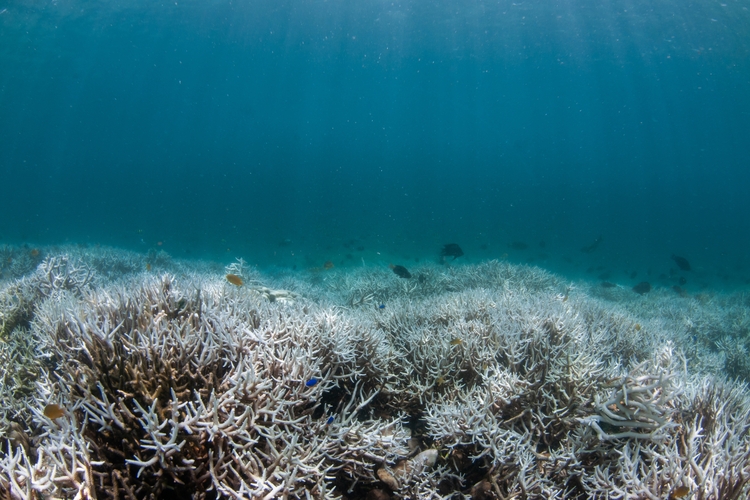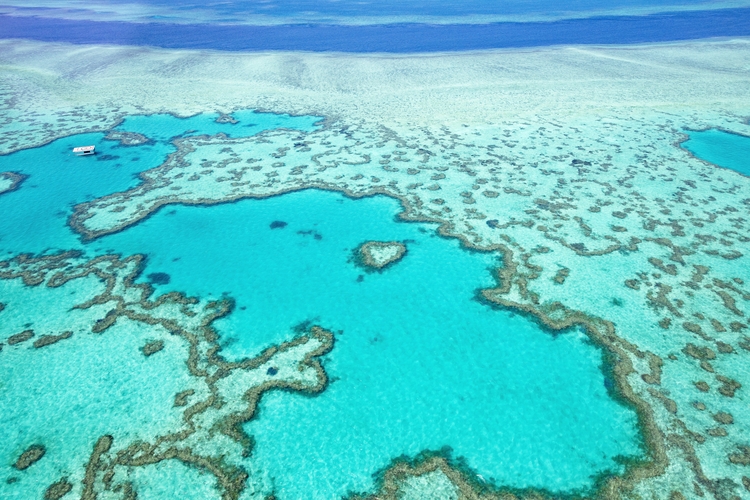
First time the planet has reached a climate ‘tipping point’ – without urgent action, further planetary tipping points will occur
By
High temperatures worldwide have plummeted coral reef ecosystems into widespread decline, marking the first time the planet has reached a climate ‘tipping point’, according to a new report.
Without rapid action to limit greenhouse gas emissions, researchers say other systems on Earth will soon reach planetary tipping points, defined as thresholds for change that cannot be rolled back.
Led by scientists at the University of Exeter, the new report assesses the risk of breaching tipping points such as ice sheet collapse, rising seas and dieback of the Amazon rainforest. Conversely, it also discusses progress towards various positive tipping points, such as the adoption of clean energy.
Check out our related reads…
In the last few years, the impact of global warming on coral reefs has been severe, pushing ecosystems to these tipping points. Warming waters have led to corals bleaching across the world, a phenomenon that occurs when coral expels all-important algae from themselves which gives them their characteristic bright colours and provides nutrients.
The fourth coral bleaching event in the last few decades began in January 2023, with researchers estimating that it affected more than 84 per cent of the planet’s coral ecosystems.

Even if global temperatures are stabilised at around 1.5C above pre-industrial levels, corals would continue to decline – except for fragments of reef that may be preserved with conservation action. According to the report, to maintain coral reefs at a ‘meaningful scale,’ humanity must cool the planet to around 1C above pre-industrial levels through the extraction of CO2 from the atmosphere.
‘The findings of this report are incredibly alarming,’ said chief scientific advisor at WWF-UK Dr Mike Barrett. ‘That warm-water coral reefs are passing their thermal tipping point is a tragedy for nature and the people that rely on them for food and income. This grim situation must be a wake-up call that unless we act decisively now, we will also lose the Amazon rainforest, the ice sheets and vital ocean currents. In that scenario we would be looking at a truly catastrophic outcome for all humanity.’
Temperature rise is also expected to trigger the widespread dieback of the Amazon rainforest due to a combination of climate change and deforestation. More than 100 million people depend on the region, so it is vital that the Amazon is protected for future generations to come. As well as this, the collapse of the powerful AMOC (Atlantic Meridional Overturning Circulation) could also be a reality faced by the planet if temperatures continue to soar.
The report’s authors are working with Brazil’s COP30 Presidency to accelerate climate transition plans and trigger self-reinforcing change across different sectors – from agriculture to energy.
Some scientists take a subtler approach to tipping points – for example, one study published by the European Geosciences Union cautions that interactive stressors, feedbacks and other effects complicate efforts to estimate whether tipping thresholds have been reached. In addition, they argue that these knowledge gaps mean researchers should adopt a precautionary approach (using lower bounds of threshold estimates) rather than asserting systems have definitely tipped.
Others believe that these critical thresholds have not yet been breached. Even under intense pressure, corals can adapt and evolve. As executive director at Coral Reef Alliance, Heather Starck notes, ‘The tipping point story isn’t about collapse; it’s about potential. If we act boldly, we can trigger positive tipping points that move coral reefs toward adaptation instead of decline.’
By reducing local stressors and mobilising community action, positive tipping points can be reached that will allow coral refs to thrive.
Why is coral vital for the planet?
From protecting coastal areas to acting as an important ecosystem for marine wildlife, coral reefs play a significant role on the planet. They can be found throughout the world’s oceans in both deep and shallow waters.
Thousands of species can be found living on one reef. Take the Great Barrier Reef for example, which contains more than 400 coral species, 1,500 fish species and 4,000 mollusc species.

Globally, coral reefs have an estimated value of £6 trillion, in part due to their contribution to fishing and tourism industries, alongside the support they provide in coastal protection.





